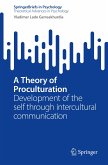This book challenges questions like what happens when shortcuts are allowed in the design, analysis, and interpretation of psychological research. The author argues that shortcuts lead to experimental results that are of low power and lack precision that should be afforded experimental work. Consequently, it should not be surprising that psychological science has difficulty replicating its findings. Another discussed topic is the lack of success of self-esteem training techniques despite their widespread usage. The failure of self-esteem training is contrasted with the success of work that involves the use of standardized testing procedures and scores, such as IQ. From this perspective, while self-esteem and IQ testing have been proposed as pinnacles, meaning that they constitute comprehensive influences on many aspects of behavior, only IQ can function as a Holy Grail. It is also argued that some areas of social science, particularly unconscious bias, have not been subjected to sufficient critical scrutiny, and therefore are associated with rather weak empirical profiles that do not justify the popularity of the procedures. Throughout the book, the work habits of modern scientists are contrasted with those of one of science's most successful practitioners, Charles Darwin, and to a lesser extent, Sigmund Freud. The contrasts between the historically-validated work of Darwin on the one hand, and on the other, modern psychological science of Freud , suggest avenues of methodological improvement for modern psychological science.
Dieser Download kann aus rechtlichen Gründen nur mit Rechnungsadresse in A, B, BG, CY, CZ, D, DK, EW, E, FIN, F, GR, HR, H, IRL, I, LT, L, LR, M, NL, PL, P, R, S, SLO, SK ausgeliefert werden.









